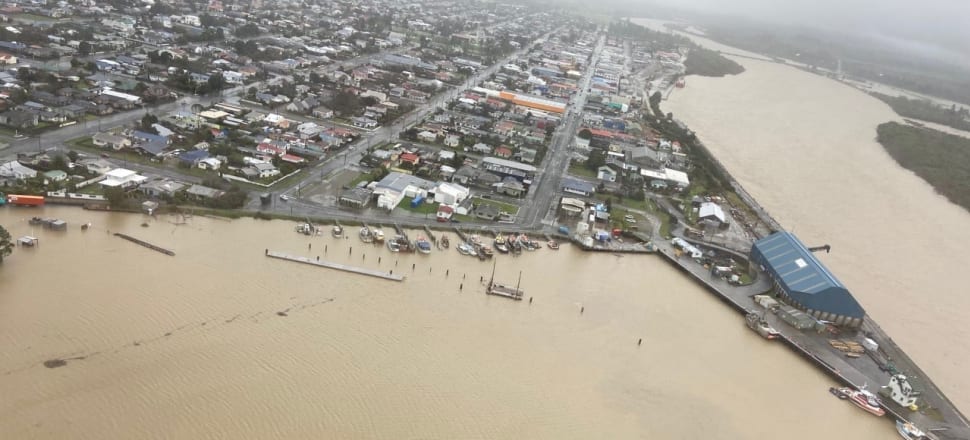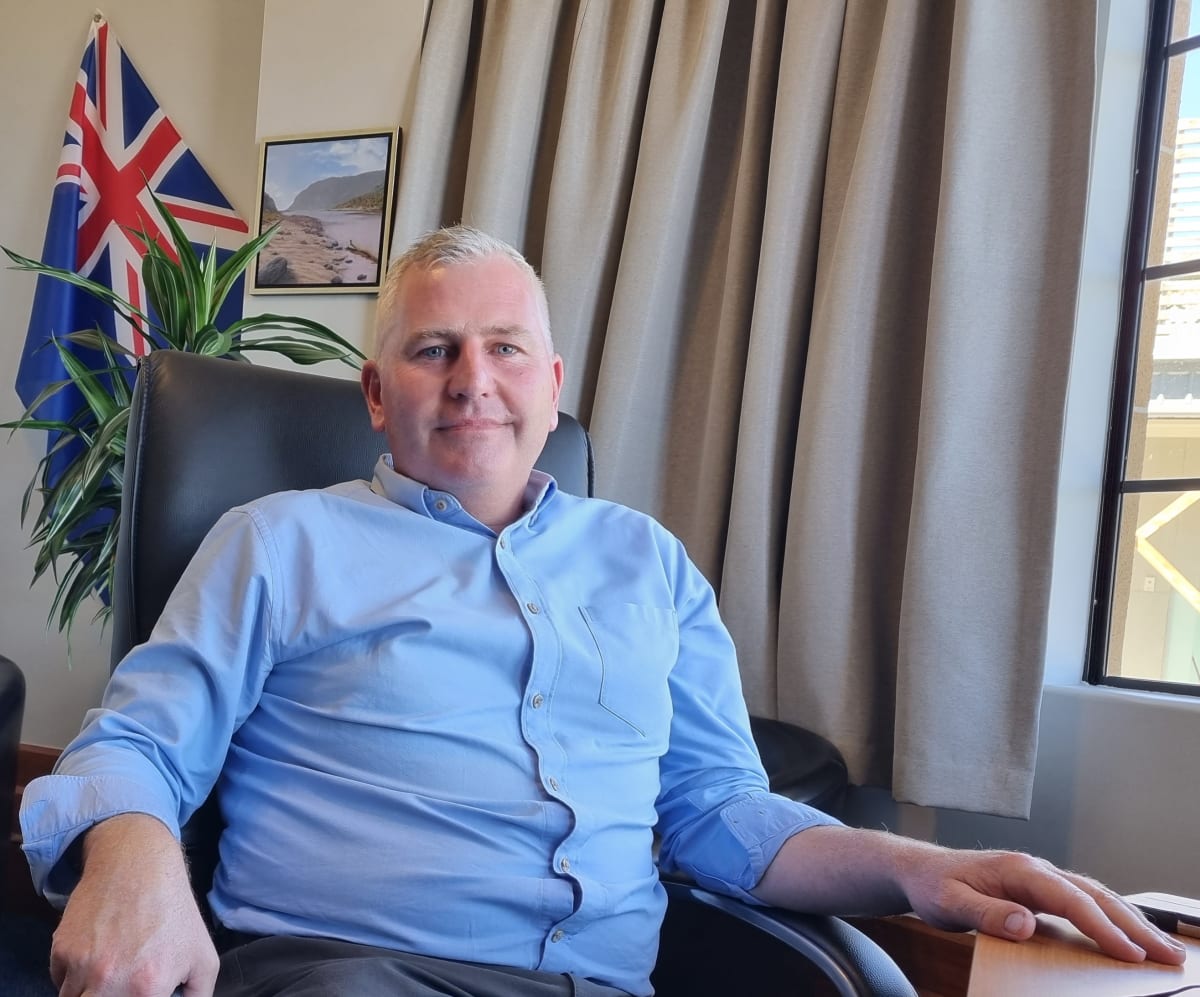
For the first time in more than a century Westport’s public water supply is under threat as climate change wreaks havoc in the hills
The West Coast town that’s been flooded twice in two years was this week forced to conserve water despite weeks of rain because the mountain run-off entering the supply is too silty to treat.
The once pristine Westport supply comes from Giles Creek in the hills southwest of the town at the base of Mt Rochfort and is gravity-fed to the reservoir through a system of tunnels dug by the pioneers in the 1800s.
Buller District Council infrastructure manager Erik de Boer says the trouble started with the deluge that hit the district in February this year, causing major slips.
READ MORE: * Planned retreat from flood-prone Westport and its stoic history * Westport readies for another drenching
“In the past 30 days the Westport catchment has had 515mm of rain resulting in further slips in the intake. This has meant the Giles Creek water has become too dirty to treat and the council has been unable to extract from the intake.”
The town’s reservoir was less than half full this week, triggering a ban on all outdoor use.
Council contractors working between spells of rain have been able to pump water into the system from less turbid tributaries, de Boer says, but not quite enough to meet demand.
“The council is exploring all other options to increase water take and with a fine weather period forecast for the next five days it will allow the main water intake stream to clean up.”
Staff will have to carefully manage reservoir levels over the coming week but they should hold, de Boer says.
“Westport and Carters Beach use 5200cu m of water a day; restricting use to essential needs will hopefully slow down the depletion of the supply.”
The town’s water was shut off for six hours on Wednesday while contractors fixed leaks in the main supply line to the town in a concerted effort to prevent further losses.
De Boer says contractors are also installing a new section of pipe along the Westport trunk main.
“This is our most leak-prone piece and the replacement should see a reduction of water loss - the essential-use order will remain in place until storage levels have recovered to 60 percent.”
Alternative supply sought
Buller Mayor Jamie Cleine says looking to the future Westport will need to explore alternatives to the system that’s served it well for 130 years.
“It’s not unusual to get a lot of rain here in spring and early summer but we’ve been dealing with this off and on since February. The frequency is increasing and I guess it's the thin end of the wedge of climate change - it’s very challenging.”

The council has spent millions of dollars cleaning out and repairing the sturdy water tunnels built by the early engineers, Cleine says.
“We’d no sooner done that than we’re confronted with this. The old-timers were confident enough in the quality of the mountain water to dig 5km of tunnels to get it to Westport and until this year we’ve never had this issue. But now you get these intense downpours and big slips and the creek just turns to chocolate.”
The Buller council is waiting in hope that the Government will approve a $54 million flood-defence and climate-change adaptation scheme designed to keep it watertight for 100 years.
The decision on what’s expected to be a test case for communities seeking climate-change resilience funding was earlier expected to be announced in October.
“It’s working its way through Cabinet we understand. There’s a very thorough process it has to go through to make sure it all stacks up,” Cleine says.
But to future-proof the town’s drinking water, still more funding will be needed because Westport needs a back-up option - most likely bore water.
“We could sink bores and tap into the aquifers and we need to build more storage. That would give us resilience, though it would cost a bit.”
The council has put a case to the Government to fund those options as well as part of a Three Waters package.
Meanwhile, the irony of the current hose ban is not lost on the Buller mayor.
“People are struggling a bit to understand it - it’s raining every day but we’re running out of water.”
Made with the support of the Public Interest Journalism Fund








